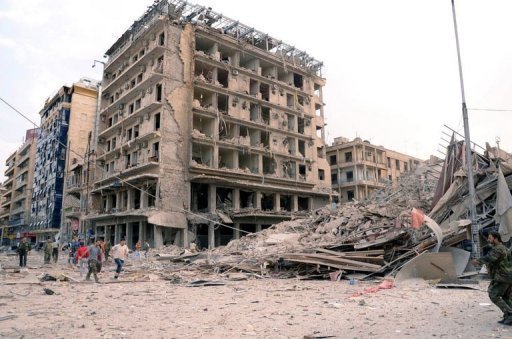CAIRO: Egypt’s capital led Africa in foreign direct investment (FDI) growth for 2008, according to a report by the Financial Times’ FDI Intelligence.
The report, entitled “FDI Special Report: The Shape of Things to Come, includes a performance analysis for regional progress in FDI for 2008 along with comments on FDI global outlook for 2009.
According to the report, Africa was the world’s fastest growing region for FDI in 2008, with project numbers up 114 percent, capital investment growth of 136 percent and jobs creation up 101 percent from 2007.
The Middle East region came in second to Africa, with a 90 percent increase in projects created, 131 percent growth in capital investment and a 162 percent spike in new jobs created.
South Africa led the rapidly growing continent in project numbers with 104 percent growth over 2007. Egypt was third in this category after Morocco with 83 FDI projects in 2008.
Nigeria topped the list in the area of capital investment, growing 743 percent from 2007.
Morocco camp out on top in terms of job creation growing 80 percent year-on-year for 2008. Egypt came in third after Algeria with 33,918 jobs created in 2008.
Egypt was also ranked the 12th fastest growing source country for FDI projects in 2008.
If Egypt gave a good performance on the 2008 rankings, Cairo stole the show.
In Africa, Cairo was the top city for projects, with 29 in 2008, the second in capital investment with $8 billion and the top in job creation with 15,494 jobs created in 2008 alone.
However, the report states, despite these strong numbers Cairo’s growth in the areas of projects and capital investment were below the regional average for 2008, though new job creation grew 153 percent.
Africa’s success in 2008 was in line with a growing trend of FDI growth powered by developing nations, the report states.
Between 2003 and 2008 FDI outflows from developing countries grew 10-fold reaching $253 billion while FDI sourced from developed countries grew only three-fold.
During the same period, the number of projects sourced from the developing world nearly doubled, while cross border mergers and acquisitions grew three-fold to $180 billion between 2003 and 2007.
In 2008 alone, project counts from developing countries grew 50 percent compared with a 25 percent growth rate in the developed world.
Seventeen percent of the companies on the Financial Times Global 500 List for 2008 were from the developing world, while 20 percent of banks listed on The Banker’s Top 1,000 Banks 2008 were banks from developing countries, including a third of banks on the list’s top 20.
“The global recession is hastening the shift of focus to developing countries as they remain the only source of growth in the world economy. At the same time that these economies have become key destinations for FDI, their companies are rapidly internationalizing and becoming multinational enterprises, wrote FDI Intelligence product director Henry Loewendahl in the report.
Despite a recorded 21 percent drop in FDI flows for 2008, developing economies are set to fare better than their developed counterparts this year.
According to the report, developing economies will see a drop of around 13 percent in 2009 versus a predicted 49 percent for developed countries. 2009 numbers for the developed world are predicted to be similar to 2008 outcomes.
“Outward investment from developing countries is expected to continue to grow faster than that from the developed economies because developing countries achieve much higher levels of economic growth. Also, because their already large base of companies have the resources, they have the know-how and critical mass to expand overseas, Loewendahl wrote in the report.
Despite this positive outlook for the developing world, countries like Egypt that hope to benefit from increased FDI inflows will have to adjust to meet the changing shape of FDI investments.
Many of Egypt’s traditional areas of strength, including textiles, real estate and automotive are rapidly declining – manufacturing FDI investments have been rapidly declining from their peak levels of 34 percent of projects in 2003 – while rising FDI industries include the service sector and alternative energy technology.
FDI projects in renewable and alternative energies rose 10-fold between 2003 and 2008, according to the report.
Despite this, Egypt continues to have a stronghold in the oil and gas sector, which has supported Egypt’s FDI levels through the crisis, says Mohamed Abu Basha, an economist at Cairo investment bank EFG-Hermes.
“FDI was $8 billion for fiscal year 2008-2009 versus $13 billion for the previous fiscal year due to the effects of the recession, Abu Basha told Daily News Egypt.
“Whereas investment used to be centered in non-oil sectors such as manufacturing and infrastructure, the past year saw more focus on the hydrocarbons side, including oil and natural gas and lower non-oil investments, he continued.
As for the future, it looks to be in the oil and gas sector, at least until the effects of the crisis wear off and the appetite for local investment in up and coming sectors recovers.
“We predict similar levels of investment for the current fiscal year, about $7-8 billion, mostly in hydrocarbon industries. We don’t expect any big changes as the effects of the crisis continue to impact FDI numbers, said Abu Basha.

